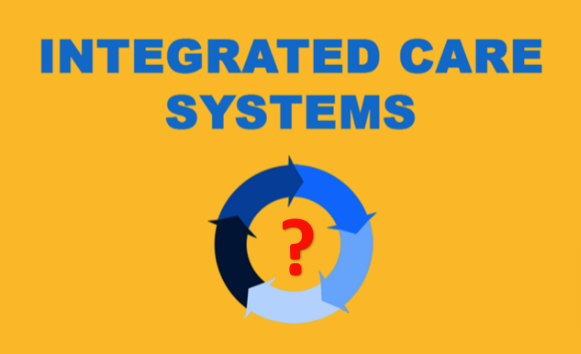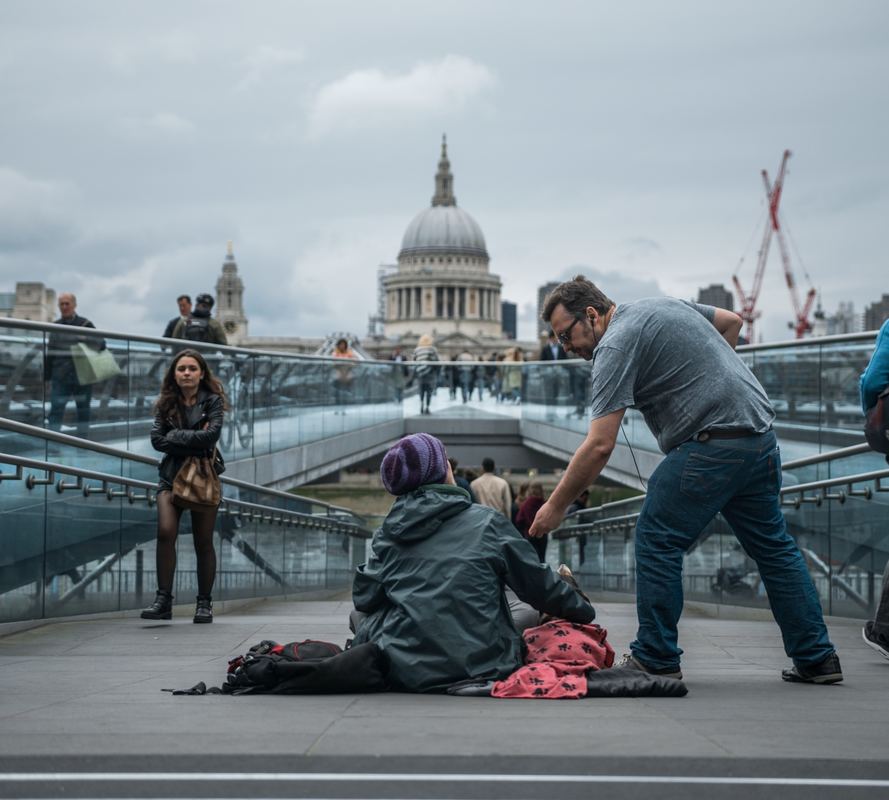By Harry LeitchIn a series of guest blog posts by Harry Leitch, Integrated Care Systems will be explained, and key concerns highlighted. The question will then be asked, what do these changes mean for communities? "Although seen by the media as suggesting the role of the private sector will be reduced, the proposed legislation, if passed, will enact the current government’s wish to further fragment, destabilise and privatise our NHS." - Keep Our NHS Public
During a pandemic that has revealed the necessity of universal, comprehensive and equitable healthcare, a top-down reorganisation of the NHS is underway. In accordance with proposals from the 2019 Long Term Plan, NHS England (NHSE) is transforming the NHS into Integrated Care Systems (ICS). For Keep Our NHS Public (KONP) and other campaign groups, these moves represent a severe threat to the NHS and a failure to achieve the increased and sustained funding required. Key concerns include use of a population health perspective, lack of regulation and increase presence of private companies within the NHS.
0 Comments
Violent youth crime won’t change until we start speaking about it differently. We need to recognise the psychosocial factors that contribute towards violence and the ineffectiveness of our current response towards crime Alex Lloyd
In the past 18 months, the UK has seen a spike in violent crime. Recent figures released by the Home Office suggest that offences involving knives have increased by two thirds since 2014. The use of these weapons by young people against other young people, in particular, is rising. Although the issue has been addressed by the media and politicians, discussions have focused on criticising police cuts and promoting tougher sentences for individuals caught carrying offensive weapons. This public narrative doesn’t include consideration of how wider social and psychological factors impact the act of committing a crime. When knife crime is reported to the public, the emphasis is almost solely on the incident itself. Media outlets spare no detail recounting the events and condemning the perpetrators for what is seen as a senseless act of violence. In political debates, these incidents of violence have been used to highlight the impact of austerity, including police having reduced capacity to deter and respond to these events. While some journalists have highlighted the closure of youth clubs as a relevant precursor to the upsurge in crime, this consideration of broader context tends to be the exception rather than the norm. For the most part, the media decontextualizes acts of violence from the wider influences on behaviour - the conversations only begin in the moment a crime is committed. The myriad other influencing factors remain in the margins. Yet, there is a large body of evidence to suggest that offending behaviour can have its roots long before the act occurs. Young people who are exposed to Adverse Childhood Experiences (ACEs), such as physical, verbal or sexual abuse, or whose parents are in prison or going through divorce are more likely to become involved in crime. And, though we are all susceptible to experiencing ACEs, poverty acts as a risk factor - people living in the most deprived areas report the highest levels of ACEs. The more ACEs a young person has, the more likely they will be criminally involved by the time they reach their teenage years. This evidence shouts loudly that youth violence is influenced by factors that emerge or are present long before the act of crime itself. It is clear that current narratives focusing only on the act of violence itself are ignoring a range of social and psychological factors that are also a part of each young person’s story. Social disadvantage and inequality tug at the very fabric of what makes society functional. It is time to reflect this in our conversation about mental ill health First published on 20/5/2018 by The Independent during Mental Health Awareness week. Republished here on World Mental Health Day (Photo by Tom Parsons on Unsplash)
Annabel Head and Jessica Bond In 2018, mental health and psychological distress are high on the agenda. And this is great progress. The increased awareness of mental health issues and the willingness to discuss them that we are currently seeing is vital. It keeps pressure on policymakers to fulfil their promise to put mental health on an equal footing with physical health. To really make a difference, though, we need to take the conversation to the next level – to raise a different kind of awareness that leads to a different kind of action. Awareness about the root causes of psychological distress. We need to spread the message that the society and communities we live in and the way they are organised by social, political and economic forces play a significant role in our wellbeing. We need that message to become part of the conversation around mental health so that the ideas are built into the heart of all of our society’s policies, not viewed as only relevant to NHS mental health services. The case for the role that social, economic and environmental factors play in mental health and distress is robust. Psychological distress (often categorised as “mental disorders” and other terms we, as psychologists, are not always comfortable with) is not distributed equally across society. People lower down the socioeconomic ladder suffer more mental distress than those higher up, with the gradient particularly pronounced for women. Inequality is also associated with poorer wellbeing for those at the sharp end. Multiple studies have shown a link between low socioeconomic position and increased rates of depression and anxiety. Debt and having a poor-quality job – such as those with zero-hour contracts or where there is little control or reward to be had – are risk factors for experiencing distress. Unemployment is associated with a higher risk of suicide. Similarly, poor quality or overcrowded housing is linked to poorer mental health in adults and is worse for children’s educational and health outcomes. Living in a neighbourhood blighted by violence or with a high crime rate is associated with trauma. Those experiencing oppression through living in communities in which there are high levels of racial inequality and discrimination are more likely to feel distressed. |
AuthorPSC is a network of people interested in applying psychology to generate social and political action. You don't have to be a member of PSC to contribute to the blog Archives
February 2022
Categories
All
|
PSYCHOLOGISTS FOR SOCIAL CHANGE
- Home
- About
-
Groups
- Blog
-
Position statements
- UK >
-
Cymru / Wales
>
- Consultation Responses
- Housing Support Funding
- Connecting the Dots Report
- Chemical Imbalance Myth
- Review of use of dx PD
- UK Inhumane Removal Plans
- WG LGBT+actionplan
- Ty Coryton
- Commission on Race and Ethnic Disparities: The Report
- ECT Review
- Black Lives Matter
- COVID 19 and Internet Access
- Save the T4CYP Programme
- Support the Mind over matter Report
- UN Report on Extreme Poverty in the UK Letter
- England >
- Ireland >
- Northern Ireland
- Scotland
-
Campaigns
- Join our mailing list



 RSS Feed
RSS Feed
